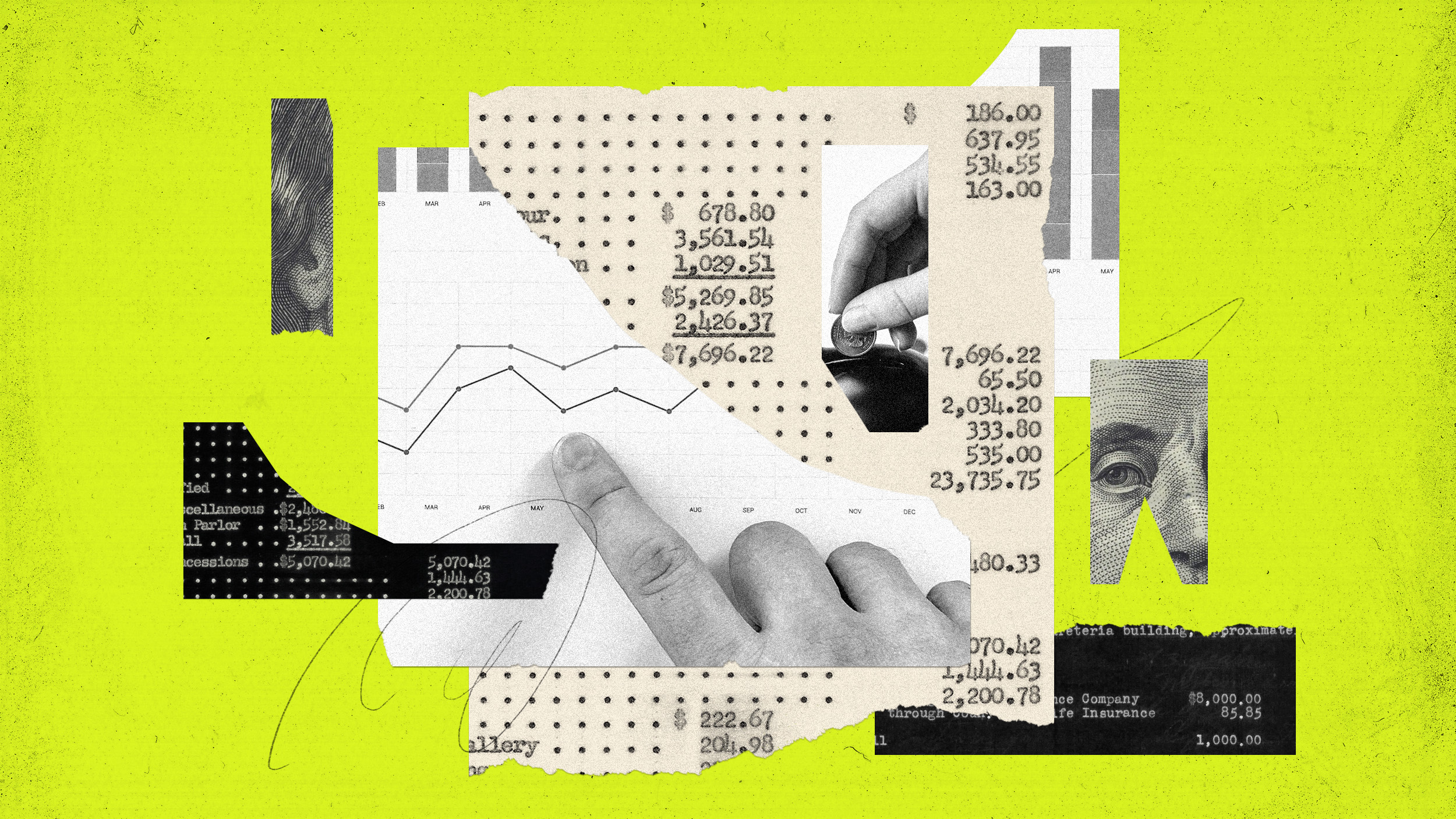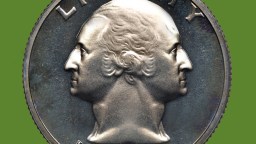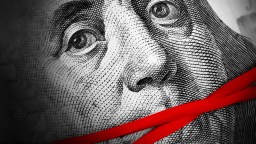When we think of someone who commits fraud, we think of people like Bernie Madoff or companies like Enron: intentional perpetrators of financial crimes. But other kinds of people commit fraud, too. Accounting professor Kelly Richmond Pope explains who else comprises the “fraud triangle” — and they might be even scarier than the big bads.
KELLY RICHMOND POPE: Fraud does not happen in a vacuum- it happens in a village. If there are people, there could be fraud. about $5 trillion today, with that number increasingly rising. So it affects everybody, every industry, every country. And so I think what attracted me originally to the subject is how universal it was. There's some research that talks about So if there's more distance between you and what you are stealing, then you sometimes think it's victimless. A lot of times people think booking a false entry is not the same thing as stealing money out of someone's wallet. No one's really going to get hurt. It's just a company. So it allows us to think that there's no victim on the other end, but we all know that there's lots of victims on the other end.
My name is Kelly Richmond Pope. I'm the author of "Fool Me Once: Scam Stories and Secrets From the Trillion Dollar Fraud Industry," and I'm an accounting professor at DePaul University in Chicago, Illinois. When I started studying fraud years ago, I was introduced to the work of Donald Cressey. Donald Cressey is known as the criminologist that introduced the Fraud Triangle. And the Fraud Triangle has three indices: opportunity, rationalization, and pressure. I was always fascinated by the rationalization component of the Fraud Triangle because it explains so much. It helps us learn about how we can protect our organizations when we can understand how a person rationalizes these types of behaviors. The simple rationalization of crime is the bigger the reward, the more likely we are to steal- but it's more complex than that. There's this misconception that all perpetrators are the same, that the reason why people engage in fraud is a lack of morality; people steal for greed, and that's not true. All perpetrators are not the same. So I came up with these three: intentional perpetrators, accidental perpetrators and righteous perpetrators. Intentional perpetrators is what we binge when we watch Netflix, Amazon Prime- it's what the movies are made of.
CDO MANAGER: 'Synthetic CDOs.
MARK BAUM: What did you just say? Synthetic CDOs, that is fucking crazy.
CDO: It's not, it's awesome.'
POPE: Most of the headlines are intentional perpetrators. Bernard Madoff, the Enrons of the world. These are people that set out to defraud. They tend to be pretty savvy, pretty arrogant, pretty confident. Notice these are traits that we tend to admire in a corporate structure. They don't set out to just think about how I can defraud every person that walks down the street. They know their organization well. They know the internal control weaknesses inside the organization, and they use that and exploit it for personal gain. So when you think about Madoff-
NEWSCASTER 1: 'Madoff is alleged to have duped investors out of a staggering $50 billion.'
POPE: Madoff was powerful. His credentials seemed impeccable; a former chair of the NASDAQ. No one questioned him. Everybody wanted to be invested in his fund.
NEWSCASTER 2: 'The man who prosecutors claim used his cloak of professionalism to commit fraud on a massive scale.'
POPE: And there were very little internal controls around him. What he said is what happened- that's an intentional perpetrator. But the accidental and the righteous perpetrators, those categories should make you feel a little bit more uncomfortable because you may relate to them in a way that you never imagined that you would. A lot of us may do something to help a friend, to help a family member, to even help a colleague. And we might not think initially it would lead to prison, but it can. That's the righteous perpetrator category.
And the accidental perpetrator should scare you even more. I was very strategic about using the word "accident" because an accidental perpetrator, they're a team player, they are a people pleaser. They don't rock the boat. You ask them to do something, they do it. They trust. They are loyal. Think about this, if your boss, your supervisor, asked you to do something, you probably don't think twice about it. If they asked you, "Go and book this entry, we can reverse this entry next period. We just need it to make the financial statements look the way we need. We'll fix it later." You trust this person; you might do it. That's the accidental perpetrator dilemma that they find. They wanna follow the boss's orders, but it could land you in prison. That's the accidental perpetrator, and that could be any of us, any of us.
My ending lecture in my class is always about when you walk into these organizations, you probably will be the person that sees it first. The new person always sees something first. And so what's gonna happen? Are you gonna speak up? Are you gonna find yourself looped up into a scandal and you didn't even mean to be there. I was always see something, say something, use the internal channels, someone will follow up, someone will support you, find a mentor inside and outside the organization. That's always been my lecture at the end, but Wells Fargo stopped it.
NEWSCASTER 3: Wells Fargo opened millions of accounts without customer's permission in order to reach aggressive sales targets.'
POPE: With the Wells Fargo scandal, it showed us the everyday pressures that employees are facing.
NEWSCASTER 4: 'Wells Fargo pushed aggressive sales goals for low-wage employees that were so unrealistic and so unattainable that some felt pressured to commit crimes just to keep their jobs.'
POPE: The tone at the top was, "We need to hit numbers, do whatever it takes to get there. So if that means opening up fraudulent accounts, applying for credit cards under fictitious names, do whatever you need to do." And that's concerning if that's what employees are being faced with, if that's what they're hearing in their weekly team meetings. What really concerned me the most was the people that tried to whistleblow were fired. That part right there was a problem. What does that say about society? You're telling me to do something wrong and I'm telling you it's wrong and you fire me? That's a bad precedent to set.
What do I tell my students? How can I tell them to trust the process? So my whole conversation changed. I was like, "Okay, you need a rainy day fund just in case you need to get outta Dodge, and get outta this company because you've seen something. Save your money so you're never beholden to a job." If you ask any working adult could you quit your job tomorrow, could you? Most of us can't. And so if you can't, that's gonna make you agree to some things that you might not normally agree to. How can we prevent that? Wells Fargo really, it put me on my heels. It made me say, "Okay, maybe these organizations are not as safe as they say. Let me give you another plan B on how you can survive if you need to."







